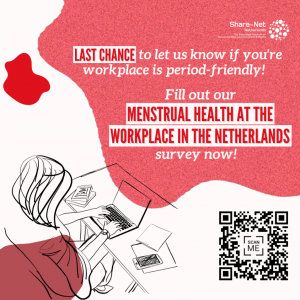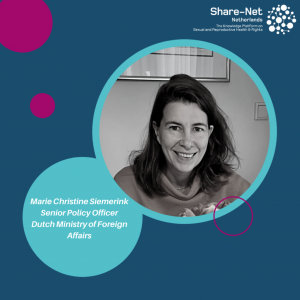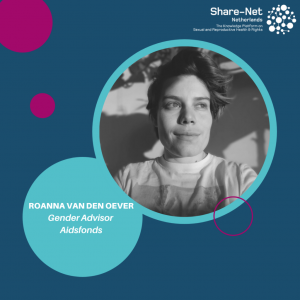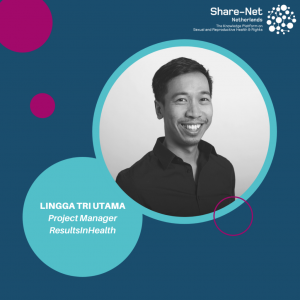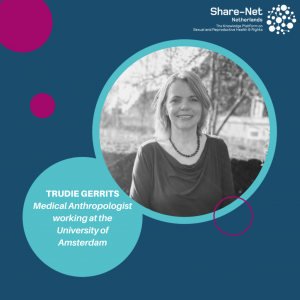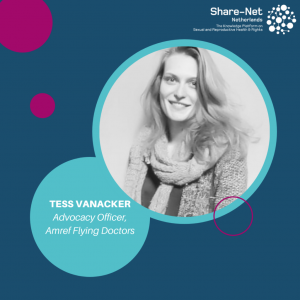Igor Medvid, of HPLGBT in Kyiv, Ukraine, a long-standing member of Share-Net International, shares the exact words we are all feeling about the…
Our Community of Practice (CoP) on Menstrual Health wants to understand how Dutch employers are supporting their employees that menstruate and they need…
This Week Member Spotlight Marie Christine Siemerink is a Senior Policy Officer at the Dutch Ministry of Foreign Affairs within…
This Week Member Spotlight Roanna van den Oever is a Gender Advisor at Aidsfonds and member of the Share-Net Netherlands Engaging Men and Boys Community of Practice who muses on…
This Week Member Spotlight Lingga Tri Utama is a project manager at ResultsinHealth and member of the Share-Net Netherlands LGBTI+…
This Week Member Spotlight Trudie Gerrits is a medical anthropologist working at the University of Amsterdam and member of the Share-Net…
This Week Member Spotlight Tess Vanacker, Advocacy officer at Amref Flying Doctors and member of the Share-Net Netherlands Gender-Based Violence Community of Practice, describes how a…

